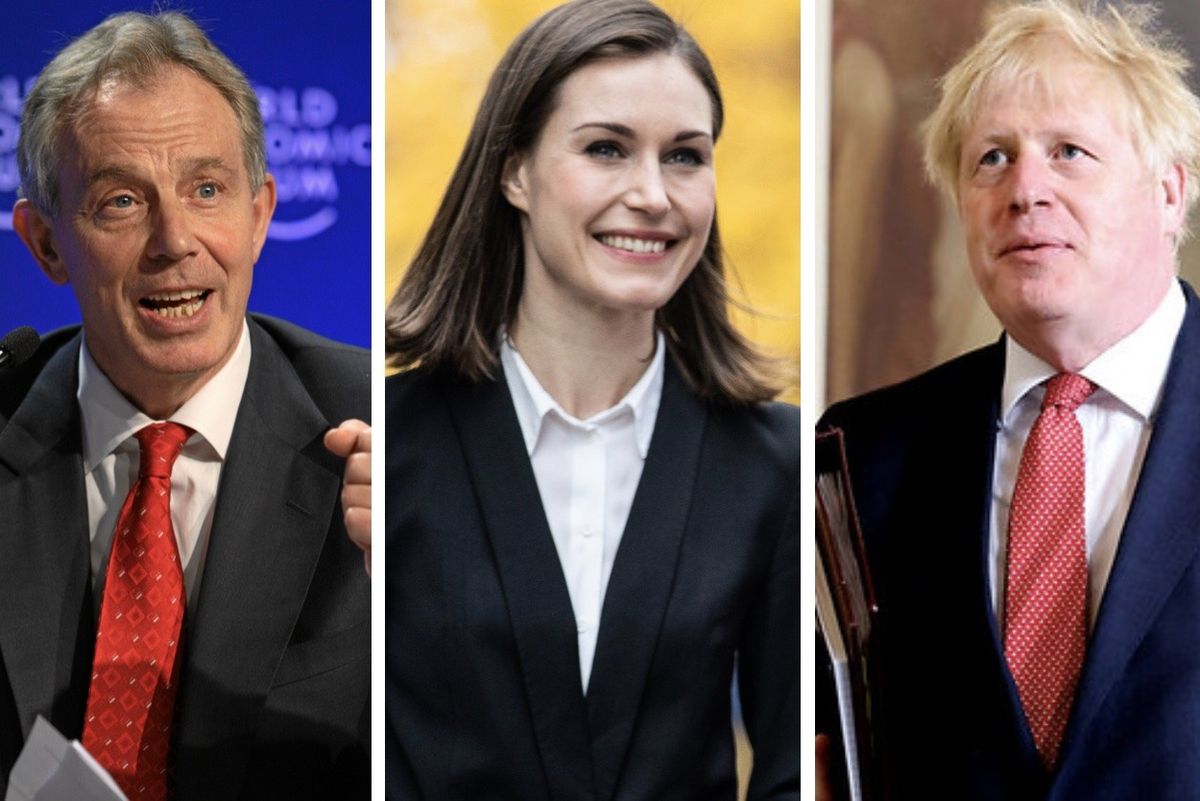Last week saw former Finnish Prime Minister Sanna Marin retire from politics after a poor election showing, and join the Tony Blair Institute, where she will be “advising political leaders on their reform programs.” The news raised some eyebrows for several reasons.
For one, former British Prime Minister Blair’s long history of advising authoritarians for money, as well as the Institute’s own funding from the Saudi government, already sits awkwardly with the non-profit’s original rationale of at “articulat[ing] a vision of liberal democracy that can garner substantial support,” as well as “progressive values.”
Also there is Blair’s leading role in the invasion of Iraq, which sits squarely at odds with Marin’s hawkishness on Russian President Vladimir Putin’s similarly illegal and disastrous invasion of Ukraine. Over her tenure, Marin rejected U.S. President Joe Biden’s suggestion of giving Putin an “off-ramp” to end the war, offered to transfer fighter jets to Kyiv, and declared she would back Ukraine’s war effort for as long as 15 years, because a lack of military victory would lead to “decades of this kind of behavior.”
But there’s also the fact that Blair’s institute was until recently at least partly funded by sanctioned Russian billionaire Moshe Kantor, a figure with close ties to the Kremlin and the largest shareholder in the strategically significant Russian fertilizer company Acron. As prime minister, Marin was one of the leading supporters of Western sanctions on Russia, calling for them to impact “the everyday lives of ordinary Russians,” and vowing that Finland would grit its teeth through the “long winter” their blowback would cause.
Thanks to those sanctions, Fins paid €5 billion more in electricity costs over 2022 and the country tipped into a recession, even if a mild winter meant predictions of blackouts didn’t materialize. This was all meant to be worth it to defend the “values of a free and democratic world.”
Yet here Marin is, taking a paid position with an institute partly funded by a sanctioned, Kremlin-connected billionaire, and run by someone responsible for an illegal invasion of his own.
Marin is not the only Western hawk who has displayed such hypocrisy. Since August, Estonian Prime Minister Kaja Kallas has been embroiled in a potentially career-jeopardizing scandal over her husband’s business interests, when it was revealed a trucking company he co-owned continued to do business in Russia long after Moscow’s invasion began. Worse, the company was part of the supply chain providing Russian security forces with tear gas — which means Kallas and her husband were indirectly profiting off the Kremlin’s repression of anti-war protesters.
Yet Kallas has been a strident hawk on the war. She has labeled calls for negotiations “very dangerous,” has repeatedly called diplomacy to end the war mere “appeasement,” banned tourist visas for ordinary Russians while urging others to do the same, and demanded tighter sanctions while admonishing local companies to find a “moral compass” and avoid deals that would let Moscow circumvent sanctions. Thanks to those sanctions, Estonia saw the EU’s single biggest price hikes for food and fuel.
Others may not have financial ties to Russia, but have histories of cozy relations with Kremlin-connected oligarchs or even Putin himself.
Former UK Prime Minister Boris Johnson took a hardline position on the war, insisting it could only end through total military victory instead of peace talks, vowing to “squeeze Russia from the global economy, piece by piece,” and traveling to Kyiv to scuttle a reportedly tentative peace deal in the war’s early months, preferring to inflict more military damage to Russia.
Johnson, whose party received a deluge of Russian-connected donations since he became prime minister in 2019, has long been close with Russian oligarchs. He helped make the UK a destination for oligarchs to park their cash free from accountability, and had several personal relationships with them. That includes Evgeny Lebedev, son of an oligarch and former KGB spy who helped Putin win power and tried to help him win Western support for annexing Crimea. Johnson personally intervened on the younger Levedev’s behalf to get him peerage in the House of Lords, despite a security risk warning from MI6.
Johnson isn’t alone among British prime ministers. Blair himself has engaged in hawkish rhetoric on the war, arguing for military defeat of Moscow as a way toward peace. Yet he had a close and friendly relationship with Putin when he was in 10 Downing Street, tacitly backing and admitting to sympathizing with the Russian leader’s war in Chechnya, and even refusing to rule out advising him in exchange for money.
In the United States, Hillary Clinton has been a vocal liberal hawk, suggesting early on that Ukraine be turned into an Afghanistan-like quagmire for Russia, and declaring the best way for the war to end “is for Ukraine to win.”
Clinton herself was once embroiled in a Russia-related scandal: while her office was responsible for helping approve a deal that gave Russian state atomic agency Rosatom control of large percentage U.S. uranium reserves, her husband, former president Bill Clinton, received a $500,000 speaking fee from a Kremlin-connected bank that promoted the stock of the Canadian mining company being purchased by the Russian firm.
Putin, whom Clinton visited at his home on the trip, personally thanked Clinton for the speech. Back in 2006, he himself lamented that, even as he expressed unease about Putin’s authoritarianism, the U.S. government was being too critical of the Russian leader.
Even some ultra-hawkish columnists once started out with far less strident positions on Putin. Atlantic columnist Anne Applebaum, who recently wrote that “even the worst successor imaginable, even the bloodiest general or most rabid propagandist, will immediately be preferable to Putin,” once wrote about the Russian leader’s “bold and unexpected decision” to ally himself with the United States after September 11 and argued that the Russian military’s friendliness with U.S. adversaries and Putin’s disinterest in a free press didn’t mean “we shouldn't cooperate with Russia.”
Chess champion Garry Kasporov, who recently all but accused Biden and his team of being in cahoots with Putin for being nominally open to the idea of negotiating, once called Putin and his coterie “people with whom the West could do business,” and explicitly justified his Chechen war. Explaining that the Chechen rebels were “bandits” and needed to be cracked down on for the government to “win support for painful economic reforms,” he urged the West to “not demand that Mr. Putin immediately halt the Chechen operation” or threaten cutting off financial assistance over it.
It’s striking that at a time when McCarthyite accusations are rife in Western debate on the war and on the subject of diplomacy specifically, so many of those who have taken the most uncompromising positions publicly either have a history of more pragmatic stances, or of their own financial and personal connections to Kremlin-linked figures and Putin himself.
It raises the question of how sincere the maximalist rhetoric and drive for escalation over diplomacy really is, and whether at least some hawks are engaging in risky and reckless behavior they don’t fully believe — perhaps as a form of overcompensation in a jinogistic climate.
















